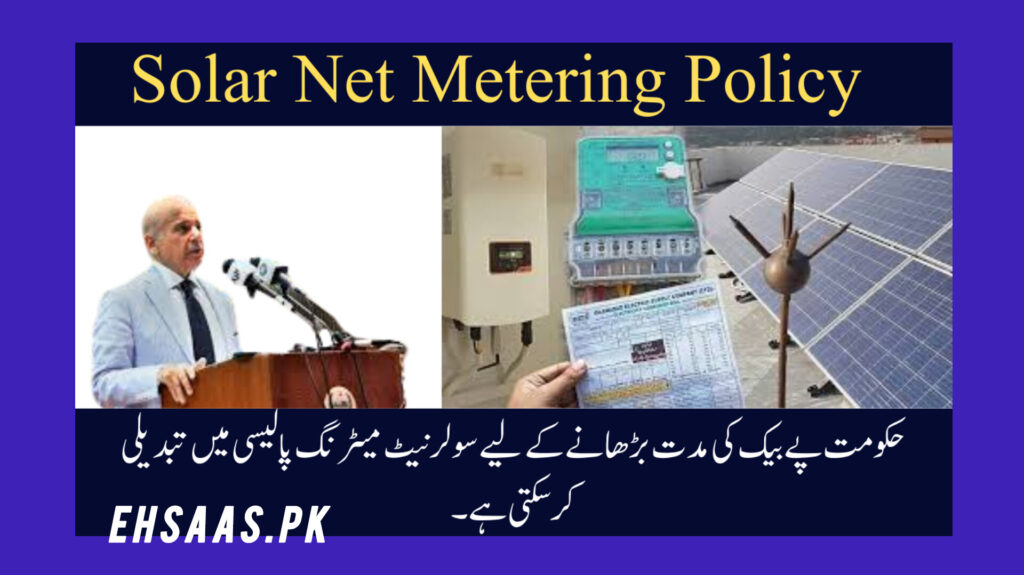Solar Net Metering Policy

The government of Pakistan is considering a significant change in its solar net metering policy, which could extend the payback period for solar energy investments. This policy shift aims to balance the financial incentives for solar energy adoption with the sustainability of the national grid and energy pricing. This article explores the potential changes, their implications, and addresses frequently asked questions to provide a comprehensive understanding of the new policy direction.
Punjab Solar Panel Scheme For 50,000 Eligible Families
What is Solar Net Metering?Solar net metering is a billing mechanism that credits solar energy system owners for the electricity they add to the grid. For example, if a residential customer has a photovoltaic (PV) system on their roof, it may generate more electricity than the home uses during daylight hours. Net metering allows homeowners to export this excess electricity to the grid and receive credits against their electricity consumption, effectively lowering their electricity bills.
Current Policy and Proposed Changes
Under the current net metering policy in Pakistan, solar energy producers receive credit for the excess electricity they generate at the same rate they pay for grid electricity. This arrangement has been highly beneficial for solar investors, allowing for a shorter payback period on their investment, typically ranging from 5 to 7 years.The proposed policy change, however, seeks to extend this payback period by reducing the rate at which excess solar electricity is credited. This could mean that solar energy producers would receive a lower rate for the electricity they export to the grid compared to what they pay for the electricity they consume.
The rationale behind this change includes:-
Grid Stability: Managing the influx of intermittent renewable energy sources to ensure grid stability.-
Financial Sustainability: Balancing the financial benefits for solar investors with the economic realities of the national grid and electricity pricing.-
Long-term Planning: Encouraging more strategic, long-term investments in solar energy rather than short-term financial gains.
Implications of the Policy Change-
Extended Payback Period: The most immediate impact would be the extension of the payback period for solar energy investments. Investors may now expect returns over a longer period, potentially 10 to 12 years.-
Investment Decisions: This change could influence the decision-making process of potential solar investors, possibly slowing the rate of new installations as the financial attractiveness diminishes.
Market Dynamics: Solar panel suppliers and installation companies might need to adjust their business models to align with the new economic landscape.
Environmental Impact: While the policy aims to stabilize the grid, it may inadvertently slow down the adoption of renewable energy, impacting the overall environmental goals.

Frequently Asked Questions
What is the current net metering policy in Pakistan?
Under the current policy, solar energy producers receive credit for the excess electricity they generate at the same rate they pay for grid electricity.
What are the proposed changes to the net metering policy?
The proposed changes involve reducing the rate at which excess solar electricity is credited, potentially extending the payback period for solar energy investments.
Why is the government proposing these changes?
The government aims to manage grid stability, ensure financial sustainability, and encourage long-term investments in solar energy.
How will the proposed changes affect solar investors?
Investors may face an extended payback period, potentially up to 10 to 12 years, which could influence their decision-making process.
What impact will these changes have on the market dynamics?
Solar panel suppliers and installation companies might need to adjust their business models to align with the new economic landscape.
